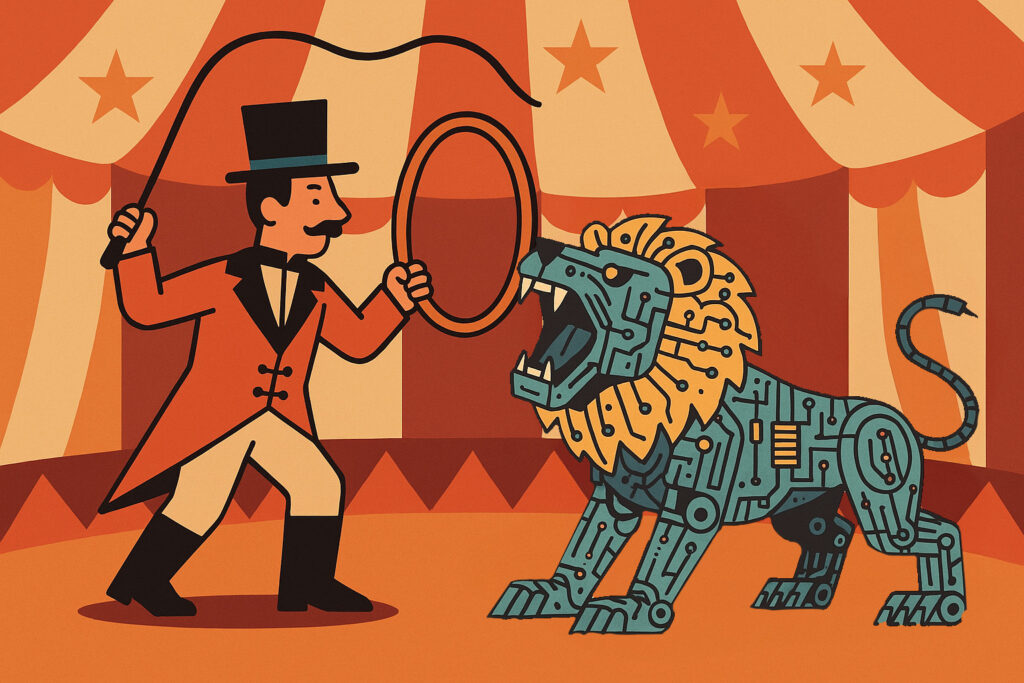A rejection email I received recently had a fascinating sentence in its signature: “This email was written with the help of AI.” Fair enough, my application was, too.
But it sparked a crucial thought: Is Generative Engine Optimisation (GEO) even a thing in a short text like a cover letter?
Is AI screening my job applications?
I am looking for work and I was struck by the idea of having to implement GEO (Generative Engine Optimisation) in my cover letters and CV.
AI helps me send applications out, surely it is going to filter them on employer´s side.
Is AI in the near future going to be the one to ditch me, if my cover letter doesn't provide enough context?
Hence, I came to the conclusion that we should be trying to steer AI.

It should think that we are overall the better choice for the job, even if we don’t tick every single box.
Here is the experimental process I'm exploring:
Step Zero:
Train the AI
Create an AI chatbot (Let´s call it "career coach GPT").
It has information about oneself, knows the CV, online profiles, website and so forth. All which is relevant for the job pursuit.
It should also know wishes, long term goals, no-gos, values, weaknesses and dislikes, psychological traits.
Step One:
Analyze the Employer (with AI assistance)
I use an AI to analyze the employer's public profile: their mission, values, customers, and services, as well as their tone, phrasing, and themes in recent blog posts.
The goal is to form hypotheses about the employer´s culture and find out if our mindsets and objectives are going to match.
Examples of prompts
"Based on the company's blog and project descriptions, what seems more valued: rapid iteration or flawless execution?"
"Analyze the LinkedIn profiles of current employees in the target department to identify common skills: are our experiences and skills overlapping?"
"Estimate potential salary ranges for this role by scraping data from platforms like Glassdoor or Kununu."
Step Two:
Analyze the match
I ask AI to output a set of bullet points from the analysis, to lean on when writing the cover letter. The goal is to create a document that the "career coach GPT" can easily scan to understand my overall fitness for the role. That on top of just evaluating adequate usage of relevant keywords.
Step Three:
Write and Simulate
I write the cover letter myself. Then, as an experimental step, I let an AI review the cover letter, simulating how a "receiver AI" might interpret my application. This helps spot weaknesses. (Keyword matching is still important here!)
Step Four:
Refine the CV
Finally, I refine the CV to be in perfect alignment with the story told in the cover letter.
This process is a work in progress. It’s an attempt to stay ahead of the curve in a world where our first reader might not be human
Speculation about the future is nevertheless irresistible, and a few scenarios come to my mind:
Holistic AI Evaluation
What if an AI could perform a deep, holistic evaluation beyond keywords? Imagine it analyzing a company's projects to infer cultural values, giving an almost perfect matchmaking score and telling a candidate if they are "too creative" for a role or which soft skill is valued most.
Internal structures & workload analysis
Could a future AI analyze abstract concepts like team structure from public data? Imagine it outputting a report predicting how easy it might be to climb the career ladder or switch roles within the company.
AI Simulating Another AI
Will our personal "Career Coach" AI be able to accurately simulate and predict how a potential employer's AI will interpret our application, taking into account the nuances of different LLMs?
Criss-Crossing References
Could an AI of the future actively cross-reference the client projects on our CV with our potential employer's public case studies, highlighting the most relevant experiences and suggesting the perfect phrasing to describe them?
What do you think?
Is this the future, or am I overthinking it?
Have you experimented with AI in your job search?
I'd love to hear your experiences.
Cover image generated with Sora by OpenAI


Leave a Reply